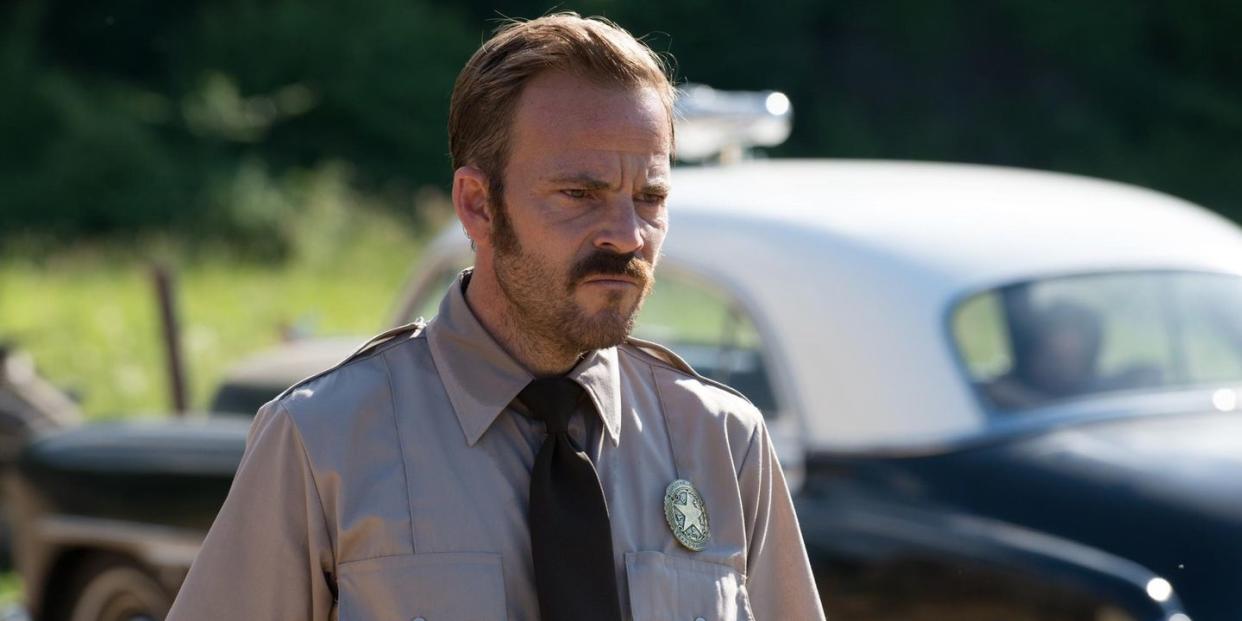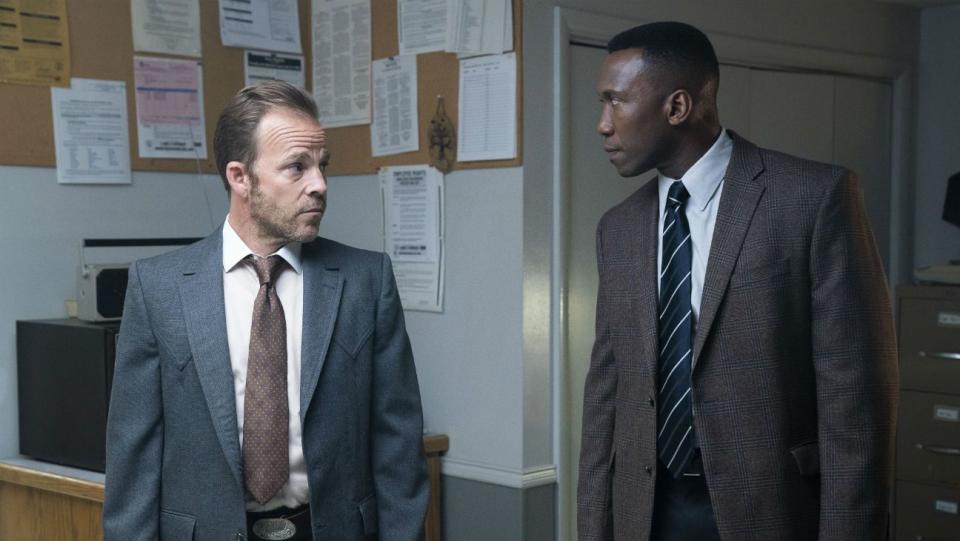'True Detective' Season Three Gave Us the Birth of the Dorffiassance

When the first trailer dropped for True Detective's third season, I joined the rest of the internet in its undying thirst for Mahershala Ali's leading role in it. Fresh off of his performance in Moonlight, which won him his first of his now two Academy Awards, Ali's inclusion in a series in such desperate need of saving assured fans, like a mother quietly whispering "Sshh" to a baby, that everything was gonna be alright.
Ali delivered on the very high expectations. His Detective Wayne Hays, across three timelines, was a complex character we got to know better with every episode, culminating in the season's final scene as he trekked through the jungles of Vietnam. Each of the three versions of Ali's Hays was a delight to watch, from the broad strokes of how genuinely he captures his character's bouts with dementia, to the fine details like the season's single greatest exchange about a badge clip. Ali flexed his capital-A acting muscles as well as we could expect from a man with two Oscars.
But lurking beneath Ali's Emmy-worthy performance, a resurgence was budding. With each episode it became clearer and clearer-and by the time I saw it, battered and bruised-petting a stray dog outside of a bar, it was firmly established: True Detective Season Three was the catalyst for a Dorffiassance no one saw coming.

Before being cast as Detective Roland West alongside Ali, the last role I even recognize on Stephen Dorff's IMDB page is in 2011's Bucky Larson: Born to Be a Star. Like most people, I have not seen that movie, but Nick Swardson's fake buck teeth aren't something you can easily forget, so for better or worse I feel comfortable calling this Dorff's Last Big Role. Dorff is probably most known for his role in the Wesley Snipes-led Blade, now reduced to a meme about opening boxes, and in Aerosmith's music video for "Cryin'," in which his tumultuous love affair with Alicia Silverstone leads her to a bellybutton piercing and a bad chest tattoo. Dorff's emotional performance in the video should have let us know he's worthy of more interesting roles than Guy Who Makes Out Aggressively In Movie Theaters. (Dorff also played Britney Spears's boo in her video for "Everytime.")
But I digress. In True Detective, Dorff's Detective West is more than just a colleague to Ali's Hays. As we see in its later episodes, what the two have been through together culminates in a friendship that lasts through the days where Hays's sickness makes him often forget that they've re-ignited the show's case in their geriatric years. In the season's third timeline, taking place in 2015, West is docile, living a simple life with his dogs. But the character we see throughout the timelines taking place in 1980 and 1990 is filled with internal and external tension-an emotion Dorff pulls off to heights higher than any Aerosmith video could ever provide.
The relationship between Hays and West in their earlier years is pretty complex itself. All the while these two are trying to solve a most-disturbing crime, West is also grappling with his relationship to the victims' father, Hays's role in information being leaked to the press (his wife), and most intensely, his role in Hays's killing of a witness in the middle of the woods in a scene in which the two nearly come to blows. True Detective's Ozarks setting is not one without racial complexities, and Dorff's West isn't completely innocent in taking parts in it. Though he gives Tom Purcell the evil eye for his use of the N-word in reference to Hays earlier in the season, leading Purcell to tearfully apologize, during the aforementioned murder scene he also lets Hays know he's thinking about using the word himself.
Dorff's character doesn't have much of a character arc-Roland West's deep-seeded, anxious, and angry personality is fairly consistent throughout the decades this season spans, but his ability to portray these emotions is impressive. Both West and Hays are men of relatively few words in a town full of loudmouths and bullies, but throughout the season, Dorff does what many of HBO's detectives of truth have done before him: showcasing a tension within and how it complicates the case at hand.
You can tell West and Hays both feel outwardly passionate about solving this crime. Hell, they spent more than 30 years trying. But while the two silently drove across the state, confronting one-eyed fixers, beaten-down trash collectors, shady family members, and even each other, Stephen Dorff showed us that often the greatest acting happens when you're not saying anything at all.
I thought about it when I first saw the pain in his eyes in that very first trailer, and I thought about it again in the finale as he sat in the mud, bottle of Jack in-hand, weeping as he drank off a bar fight he started probably just to feel anything at all. Mahershala Ali downright shined throughout True Detective's third season. But I have a feeling, or at least a hope, that I'm not the only one who feels they witnessed the second coming of Stephen Dorff in it.
Whether Alicia Silverstone likes it or not, The Dorffiassance is upon us.
('You Might Also Like',)

